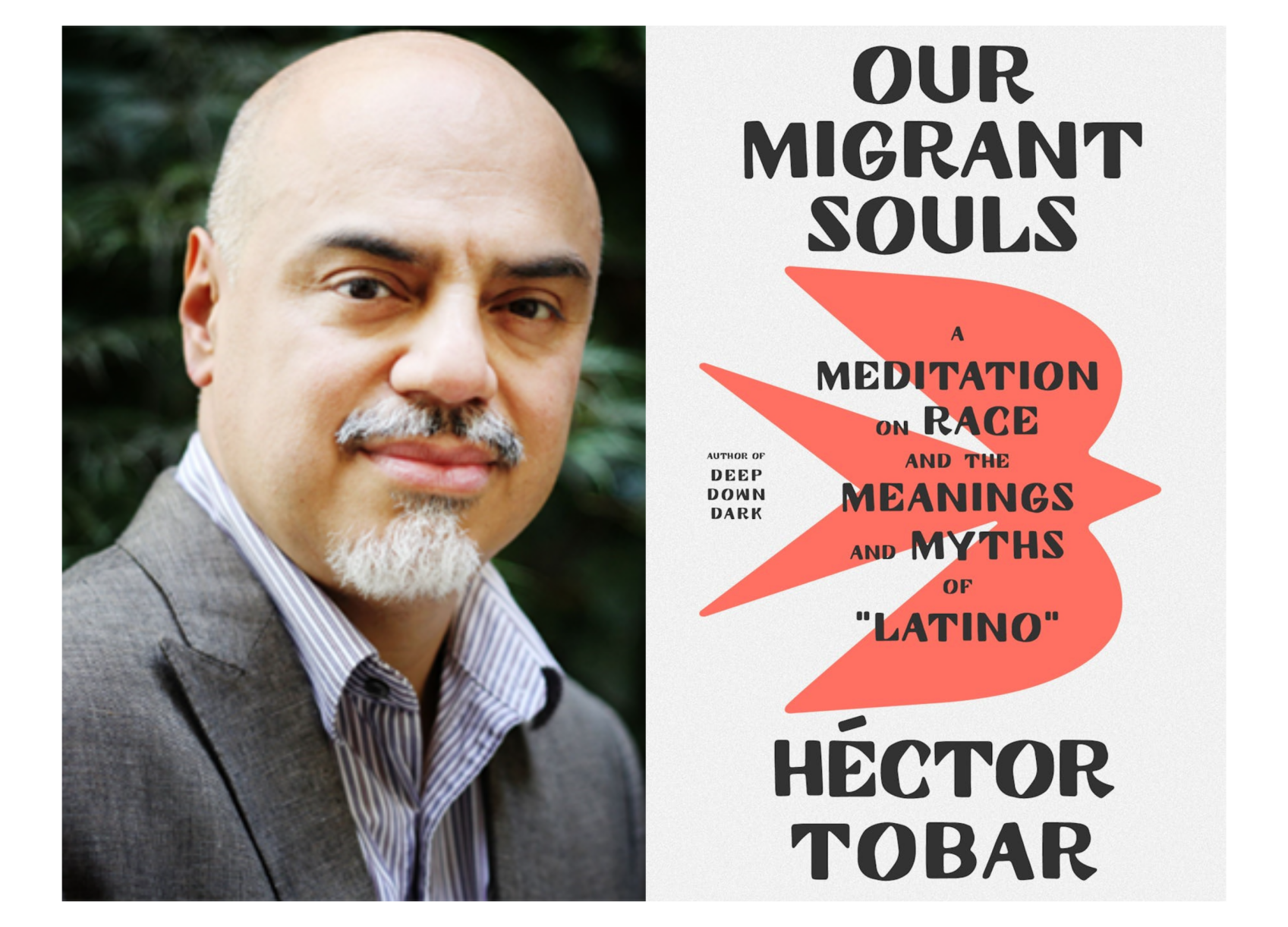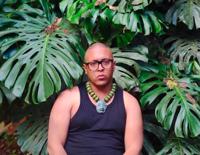
"Our Migrant Souls" by Hector Tobar delves into the interconnected lives of immigrants striving for identity and belonging in the United States. Photo provided by Hector Tobar.
Being Latino cannot be reduced to a simple checklist of traits or experiences.
After a year since the release of “Our Migrant Souls,” Hector Tobar reexamines the oversimplified views of Latino and reflects on the question: what does it mean to be Latino?
In “Our Migrant Souls: A Meditation on Race and the Meanings and Myths of ‘Latino,’” Hector Tobar interacts with Latino identity and shapes it by the racial, political and social dynamics of living in the United States.
“I've really learned a lot, just talking to people about this, as I see the arguments of the book go out into the world. It's all becoming a lot clearer to me, you know, the way in which this Latino identity fits in United States history,” Tobar said.
One critique that Tobar received about the book is that it portrays Latino people as constantly being in a state of "woundedness." Tobar has acknowledged this critique but argues that their portrayal also shows Latinos as fighters and survivors, and that experiencing hardship is only part of the experience, not the whole story.
Tobar talks directly to the reader as a way to cut through the tendency to exoticize or generalize about Latinos. Wanting to speak to the reader from his own truth and experience, he cites James Baldwin's "The Fire Next Time" as inspiration for using an intimate voice that speaks to hurt but also asserts pride.
By talking directly to the reader, Tobar aimed to be confident in his community so that he didn't need to write just to appeal to white audiences but to connect authentically with the intended young Latino reader.
Emphasis on the young Latino reader.
“I've learned lessons about the way the world looks now that I wouldn't have otherwise because of my children,” Tobar said. “They're consumers of culture and they have eyes that I don't have.”
Despite the fact that literature offers various perspectives on how Latino identity intersects with U.S. history, the book's focus on the future of the community may introduce a perspective not widely understood yet.
Speaking to young Latinos, Tobar uses pronouns like “us” and “we” throughout the book and seeks to connect with readers who are coming of age and grappling with questions about who they are and how their backgrounds shape their experiences.
Tobar, a professor of Chicano/Latino studies at UC Irvine, has drawn parallels between the stories his students have written over the years of grappling with family dysfunction/separation and his own experiences.
Tobar writes, “The people now called ‘Latino’ carry the collective memory of the arrival of a young and bold migrant. It’s a story that can live on, silently and secretly, in a mood, a disposition, passed down from one generation to the next.”
Are these stories medicine?
“They’re not just medicine, they’re like the can of spinach that Popeye takes. Or they’re shots of tequila,” Tobar said.

Mercedes Alvarez, 20, Tobar's mother, newly arrived from Guatemala, at the Griffith Observatory in Los Angeles, Spring 1963. Photo provided by Hector Tobar.
In engaging in storytelling, both as tellers and listeners, it serves as a pathway to grasp cultural identity and address the question of what it truly signifies to be Latino.
Although there have been previous texts addressing Latino identity, the critical framework and understanding of American race issues that inform works like Tobar's were not as fully developed twenty years ago.
Earlier in his writing career, Tobar attempted to explore similar themes in books such as "The Tattooed Soldier" and "Translation Nation," but those works manifested in markedly different ways. The evolution of his own thinking combined with changes in the cultural and political landscape over the past 20 years enabled this particular book at this point in time.
“I knew it was going to affect people, I knew it was really going to resonate with people because he's [Tobar] right,” Gustavo Arrelano, a columnist for the Los Angeles Times, said.
“He's writing about an issue that has always been important. But sadly, once again, it's becoming a political topic that people are using to win elections and to demonize Latinos.”
That is to say, a book that tackles these types of questions is needed now more than ever. Providing a more complex and nuanced understanding of Latino experiences that challenges simplistic narratives and representations.
It affirms Latino intellectualism and positions Latinos as having unique insights into important issues like race and inequality in America.
Literature frequently serves as a conduit for bridging cultural divides, nurturing mutual understanding and empathy, while also offering a vital platform for amplifying and honoring marginalized voices. Other examples include:
"Between the World and Me" by Ta-Nehisi Coates, a series of letters Coates writes to his teenage son, exploring what it means to be Black in America. He reflects on his own experiences growing up in Baltimore, confronting the realities of systemic racism and violence against Black bodies.
"Minor Feelings: An Asian American Reckoning" by Cathy Park Hong is a collection of essays that reflects on Hong’s experiences as a Korean American woman and explores the complexities of Asian American identity. Delving into issues such as racial invisibility, internalized racism and the challenges of navigating between different cultural worlds.
"Freshwater" by Akwaeke Emezi explores the intersection of identity, spirituality and mental illness through the story of Ada, a young Nigerian woman with multiple selves. Drawing on Igbo mythology and Emezi's own experiences as a non-binary trans person, the novel offers a meditation on the nature of selfhood and the struggle to find one's place in the world.
These books share common themes of exploring complex identities within intersecting social structures, offering intimate personal narratives that critique systemic injustices through innovative storytelling techniques.
They collectively contribute to a broader conversation about identity, power, and social justice, challenging readers to confront uncomfortable truths.
Understanding how one's personal narrative fits into the larger story of empire is crucial for navigating the complexities of history and grasping the nuanced tapestry of the human experience.
Tobar writes, “But every time I stand in a spot where the empire’s history unfolded, where I can see myself and my family and my countries inside this larger human chronology, the ground beneath my feet grows more solid, somehow.”
You can buy "Our Migrant Souls: A Meditation on Race and the Meanings and Myths of ‘Latino'" by Hector Tobar here.












(0) comments
Welcome to the discussion.
Log In
Keep it Clean. Please avoid obscene, vulgar, lewd, racist or sexually-oriented language.
PLEASE TURN OFF YOUR CAPS LOCK.
Don't Threaten. Threats of harming another person will not be tolerated.
Be Truthful. Don't knowingly lie about anyone or anything.
Be Nice. No racism, sexism or any sort of -ism that is degrading to another person.
Be Proactive. Use the 'Report' link on each comment to let us know of abusive posts.
Share with Us. We'd love to hear eyewitness accounts, the history behind an article.